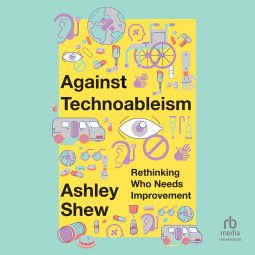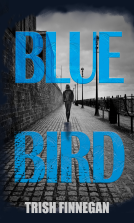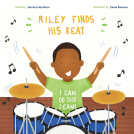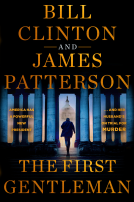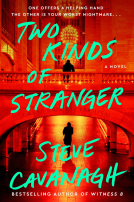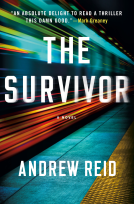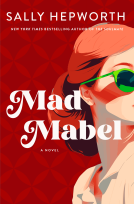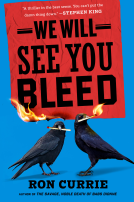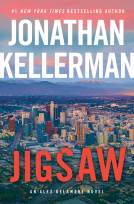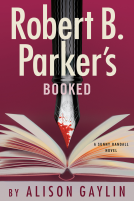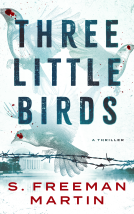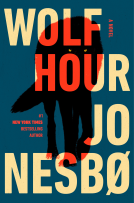Please wait... This may take a moment.
Against Technoableism
Rethinking Who Needs Improvement
by Ashley Shew
Narrated by Maria Pendolino
This title was previously available on NetGalley and is now archived.
Pub Date
Dec 26 2023
| Archive Date
Jan 02 2024
Narrated by Maria Pendolino
Thank you! Your input is valuable to us, and will be shared with the publisher.
Please sign in to submit your valuable feedback.
Sign In or Register Now.
Description
When Ashley Shew became a self-described "hard-of-hearing chemobrained amputee with Crohn's disease and tinnitus," there was no returning to "normal." Suddenly well-meaning people called her an "inspiration" while grocery shopping or viewed her as a needy recipient of technological wizardry. Most disabled people don't want what the abled assume they want—nor are they generally asked.
In vibrant prose, Shew shows how we can create better narratives and more accessible futures by drawing from the insights of the cross-disability community. To forge a more equitable world, Shew argues that we must eliminate "technoableism"—the harmful belief that technology is a "solution" for disability; that the disabled simply await being "fixed" by technological wizardry; that making society more accessible and equitable is somehow a lesser priority.
This badly needed introduction to disability expertise considers mobility devices, medical infrastructure, neurodivergence, and the relationship between disability and race. The future, Shew points out, is surely disabled—whether through changing climate, new diseases, or even through space travel. It's time we looked closely at how we all think about disability technologies and learn to envision disabilities not as liabilities, but as skill sets enabling all of us to navigate a challenging world.
When Ashley Shew became a self-described "hard-of-hearing chemobrained amputee with Crohn's disease and tinnitus," there was no returning to "normal." Suddenly well-meaning people called her an...
Description
When Ashley Shew became a self-described "hard-of-hearing chemobrained amputee with Crohn's disease and tinnitus," there was no returning to "normal." Suddenly well-meaning people called her an "inspiration" while grocery shopping or viewed her as a needy recipient of technological wizardry. Most disabled people don't want what the abled assume they want—nor are they generally asked.
In vibrant prose, Shew shows how we can create better narratives and more accessible futures by drawing from the insights of the cross-disability community. To forge a more equitable world, Shew argues that we must eliminate "technoableism"—the harmful belief that technology is a "solution" for disability; that the disabled simply await being "fixed" by technological wizardry; that making society more accessible and equitable is somehow a lesser priority.
This badly needed introduction to disability expertise considers mobility devices, medical infrastructure, neurodivergence, and the relationship between disability and race. The future, Shew points out, is surely disabled—whether through changing climate, new diseases, or even through space travel. It's time we looked closely at how we all think about disability technologies and learn to envision disabilities not as liabilities, but as skill sets enabling all of us to navigate a challenging world.
A Note From the Publisher
One of BookRiot's Ten Best Disability Books of 2023
One of BookRiot's Ten Best Disability Books of 2023
Advance Praise
"In this series of short, wonderfully lucid essays, [Shew] argues that technoableism – the popular depiction of tech as a wholesale cure for disability – does real damage by positioning the disabled body as fundamentally broken." ―New York Times Book Review
"Part memoir, part manifesto . . . this [is] an essential text for the nondisabled to use to educate themselves on the harms of technoableism. Highly recommend." ―Booklist
"Amusing and persuasive . . . Equally fierce and funny, this will galvanize readers to demand genuine equality for people with disabilities. " ―Publishers Weekly
"In this series of short, wonderfully lucid essays, [Shew] argues that technoableism – the popular depiction of tech as a wholesale cure for disability – does real damage by positioning the disabled...
Advance Praise
"In this series of short, wonderfully lucid essays, [Shew] argues that technoableism – the popular depiction of tech as a wholesale cure for disability – does real damage by positioning the disabled body as fundamentally broken." ―New York Times Book Review
"Part memoir, part manifesto . . . this [is] an essential text for the nondisabled to use to educate themselves on the harms of technoableism. Highly recommend." ―Booklist
"Amusing and persuasive . . . Equally fierce and funny, this will galvanize readers to demand genuine equality for people with disabilities. " ―Publishers Weekly
Available Editions
| EDITION |
Other Format, Unabridged
|
| ISBN |
9781696613118 |
| PRICE |
$12.99 (USD)
|
| DURATION |
4 Hours, 3 Minutes |
Available on NetGalley
NetGalley Shelf App (AUDIO)
Additional Information
Available Editions
| EDITION |
Other Format, Unabridged
|
| ISBN |
9781696613118 |
| PRICE |
$12.99 (USD)
|
| DURATION |
4 Hours, 3 Minutes |
Available on NetGalley
NetGalley Shelf App (AUDIO)
Average rating from 15 members
Readers who liked this book also liked:
Blue Bird
Trish Finnegan
General Fiction (Adult), Historical Fiction, Mystery & Thrillers
Scent of Murder
Carolina Dow
General Fiction (Adult), Mystery & Thrillers, Women's Fiction
Storm Warning
Alice Henderson
General Fiction (Adult), Mystery & Thrillers, Women's Fiction
The Survivor
Andrew Reid
General Fiction (Adult), Mystery & Thrillers
Incidentals
Sheila Yasmin Marikar
General Fiction (Adult), Literary Fiction
Death Times Seven
Anne Perry; Victoria Zackheim
Historical Fiction, Mystery & Thrillers
Jigsaw
Jonathan Kellerman
General Fiction (Adult), Mystery & Thrillers
Wolf Hour
Jo Nesbo
General Fiction (Adult), Mystery & Thrillers
